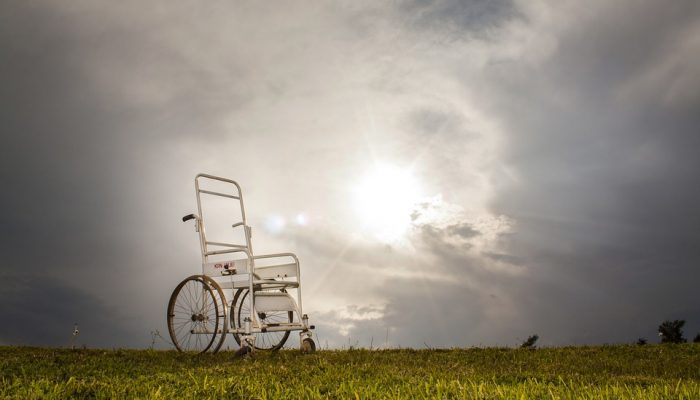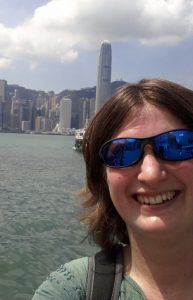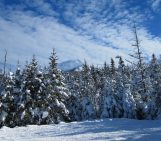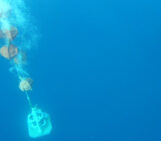
Credit: Pixabay
Climbing towards outcrops during fieldwork for your undergraduate studies simply isn’t doable for everyone. However, this doesn’t mean that there are adequate alternative solutions available. This week, Katy Willis, PhD student on strain-localisation in the continental lithosphere at the University of Leeds, UK, discusses disability in the geosciences, because regardless of who you are a career in geosciences should be available to you.
 On June 4th, 2018 at The Geological Society in London, the UK branch of the International Association for Geodiversity (IAGD) was launched under the name DiG-UK (Diversity in Geosciences, UK), and I was one of those in attendance. The IAGD focuses on the inclusion of people with disabilities within the geosciences, and DiG-UK has incorporated this aim along with championing a better representation of black, Asian, and other ethnic minority groups. Here, I am going to focus on the disability inclusion.
On June 4th, 2018 at The Geological Society in London, the UK branch of the International Association for Geodiversity (IAGD) was launched under the name DiG-UK (Diversity in Geosciences, UK), and I was one of those in attendance. The IAGD focuses on the inclusion of people with disabilities within the geosciences, and DiG-UK has incorporated this aim along with championing a better representation of black, Asian, and other ethnic minority groups. Here, I am going to focus on the disability inclusion.
Before I go on – and it’s a shame that I have to type this in the 21st century – let me point out that just because a person has a mental or physical handicap it in no way detracts from their ability to study geosciences or advance in a career in either academia or industry. What hinders them is the barriers that are erected by others before their careers even start. There are a range of disabilities. Anyone may experience a temporary one, like a broken leg restricting your mobility. Some people may experience longer term issues, for example depression triggered by the death of a parent. It may be a health issue that has intermittent effects, such as Crohn’s disease. Or it could be a lifelong issue, such as partial blindness or complex mental health issues.
Geosciences is a broad term for anything from geology to paleo-climate, right up to geodynamics. The one thing that unites such studies, especially at an undergraduate level, is fieldwork. In the UK, an accredited geology degree requires a component of fieldwork, and graduation above a certain level may demand an extended independent fieldwork experience lasting weeks. This is all well and good if you are physically and mentally capable of doing such work, but each year a small proportion of students find themselves unable to go on fieldwork. The old “solution” was to give them a desktop study while the rest of the year went off to Cyprus, Scotland, or Spain. The field group would form close friendships while away, so that those left searching dusty library shelves felt partially excluded from their year group. Hardly an acceptable solution.
The inaugural DiG-UK meeting brought together academia and industry to discuss disability inclusion. An open session looking at how different organisations have got people thinking about disability inclusion and how to practically implement it got us all chatting and sharing ideas. I was delighted to see the approach the Open University had taken regarding fieldwork. It acknowledges that not all field locations are accessible to those with physical disabilities, but there is no need to prevent such students attending field trips because there will remain a number of locations that can be readily visited. For the inaccessible locations they set up a local WiFi network and use iPads so an able bodied person can stream a live image to those who can’t reach that particular outcrop. Genius!
Manchester Metropolitan University has developed a “Diversity Dash” game to help groups understand the many barriers that all students and staff can face. Each team is allocated a character, and a range of scenarios are presented (lab work, unexpected meeting on the top floor, taking notes in lectures). The teams then have to find realistic ways in which their character can take part in the scenario. The characters cover a range of people, from someone who has a pregnant partner through to the rich student that seems to have everything but certain issues are causing increased complications.
If universities automatically allow for the provision of disabled people in their fieldwork plans, then it allows students to continue their studies should they suffer a mild injury such as a sprained ankle. During my undergraduate time, I saw two people fail to finish their course because the university was unable to accommodate their disability needs. They were intelligent people, who knew that beyond graduation lay geoscience careers that did not rely on fieldwork, but they could not pass that barrier of obtaining the appropriate degree. In both cases a few simple adjustments would have allowed them to finish.
It behoves any institute to set up a framework that encourages practical and workable disability inclusion in the geosciences. Organisations such as DiG-UK and the IAGD can provide valuable information on how to do this. Our area of study – geodynamics – sees many of us sat in front of a computer, but a lot of us were required to carry out field studies at some point in our education. It added to our knowledge and experience and in my case it inspired me into the direction of geodynamics and the desire to understand the broader picture.
In September I am taking part in a field trip to Anglesey UK. There will be a range of people going and we aim to discover which methods assist inclusion and accessibility in the field (and which don’t!). Then the findings will be shared so real and practical ways of being inclusive can be implemented for geoscience fieldwork across the UK (and hopefully internationally).
So, go on. What are you going to do this month to help people with disabilities become more involved in geosciences?
Follow DiG-UK on twitter: @DiG_UK_IAGD




